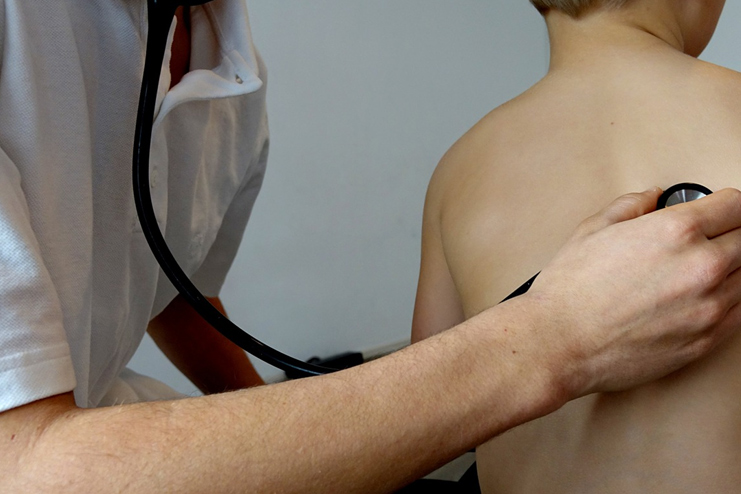Do your child is underweight as per their age? Do they lose weight every often? Does your child suffer from infection and other health problems? The answer to all this question is due to malnutrition.
Malnutrition refers to the insufficient vitamins and minerals to the body which is required for the minimum growth and development of the body. The immunity level of the body is too low in a child to carry out the regular function of the body and organs.
In this article end, you will come up to know about what is malnutrition in children, the causes of malnutrition in children and the possible ways to prevent malnutrition.
What Is Malnutrition?

Malnutrition (R) is referred to the insufficient vitamins and minerals to the body which is required for the minimum growth and development of the body. The immunity level of the body is too low in a child to carry out the regular function of the body and organs.
Malnutrition is a serious condition that occurs the children’s diet doesn’t contain the right amount of nutrients. The poor nutrition refer to undernutrition and over nutrition.
Malnutrition refers to the dietary deficiency. It resulted from a poor diet or a lack of food. This happens when the intake of nutrients or energy is too high or low or poorly balanced. According to the World Health Organization (WHO), malnutrition is the gravest single threat (R) to global public health. Globally, it contributes to 45 percent (R) of deaths of children aged under 5 years.
The poor diets may lead to a lack of vitamins that are required for the body. The malnutrition in early childhood can lead to long term health issues in children. They also have smaller babies when they grow up.
According to the World Health Organization (WHO), 462 million people (R) worldwide are malnourished, and stunted development due to poor diet affects 159 million children globally.
Signs & Symptoms Of Malnutrition In Children:

There are certain sign and symptoms of malnutrition in children are as follows;-
In mild and moderate case:
- Tiredness and weakness
- Irritability in mood
- lack of appetite
- inability to concentrate
- Mild sense of depression
- Sex drive is low
- Rate of fertility is more.
- Cold and nausea
- Vomiting
- loss of fat, muscle mass, and body tissue
- higher risk of getting sick
- Wound doesn’t get easily cure soon
- After surgery, there is too high risk of complication
- Weight get reduce suddenly
- Weekend immunity system
- Higher risk of hypothermia
- Reduce muscle mass
In more severe cases:
- There is difficulty in breathing.
- Excess loss of hair
- The hair becomes dry, sparse and falls out easily.
- Skin may become thin, dry, inelastic, pale, and cold
- the cheeks appear hollow and
- the eyes get to sunken
- There is no fat in the face as it disappears.
Who is Affected By Malnutrition:

Malnutrition is a common health problem. Anybody can suffer from malnutrition problem There are an estimated 3 million malnourished people in the UK at any time, with many more at risk of becoming malnourished.
As per the studies at around one in three people admitted to hospital or care homes in the UK who are found to be malnourished or at risk of malnourishment.
Malnutrition is caused due to an inadequate diet or a problem absorbing nutrients from food. There are many reasons why these might happen, including having reduced mobility, a long-term health condition, or a low income. Later we will focus on the cause of malnutrition in children.
[Read: Nutrition Facts For Kid’s Health]
Types Of Malnutrition In Child:

The types of malnutrition refers as
1. Undernutrition:
This is a type of nutrition results from not getting enough protein, calories or micronutrients. It leads to low weight-for-height height-for-age and weight-for-age.
It is the phase of not getting enough nutrients. The undernutrition can causes-
- Weight loss
- Loss of fat and muscle mass
- Hollow cheeks and sunken eyes
- A swollen stomach
- Dry hair and skin
- Delayed wound healing
- Fatigue
- Difficulty concentrating
- Irritability
- Depression and anxiety
2. Overnutrition:
This is a type of nutrition where it resulted from the overconsumption of certain nutrients such as proteins, calories or fat. This resulted in overweight or obesity.
As per the studies the micronutrient deficiency can cause malnutrition. This can leads to nutrient deficiency. As per the studies, people who are overweight or obese are more likely to have inadequate intakes and low blood levels of certain vitamins and minerals compared to those who are at a normal weight. (R)
As per the study at over 17,000 adults and children found that those who ate fast food had significantly lower intakes of vitamins A and C (R) and higher calorie, fat and sodium consumption than those who abstained from this type of food.
Causes Of Malnutrition In Children:

There are certain causes that lead to malnutrition in children which can be resulted from the environment and medical condition-
1. Low Intake Of Food:
As I mentioned above also this is the primary and major cause behind causing malnutrition. The poor diet or the inadequate supply of nutrients leads to diseases caused by malnutrition.
This can also lead to the symptoms of illness which are called dysphagia (R) which is difficult to swallow food. Poor diets also make the child suffer from nutrients deficiency.
From this itself, a child can suffer from various health issues and other related problems. This creates a difficult to lead a healthy life.
2. Mental Health Problem:
There are a lot of many mental health problems that are associated with malnutrition. The condition such as depression, dementia, schizophrenia, anorexia nervous, and bulimia can lead to malnutrition.
There are many studies founded that depression and other mental health conditions increase the risk of malnutrition. One study found that the prevalence of malnutrition was 4% higher in people with depression compared to healthy individuals. (R)
3. Digestive Disorder And Stomach Condition:
If the body doesn’t absorb the nutrients efficiently due to digestive problems then it can lead to malnutrition. The individual with Crohn’s diseases or ulcerative colitis does need to have the small intestine remove in order to absorb the nutrients. The bacterial overgrowth in the intestine can also causes malnutrition in children.
4. Diabetes:
Diabetics are also one of the causes behind malnutrition. As due to increased blood sugar levels, the child’s body cannot absorb the vital nutrients that are required for minimal growth and development. The pancreas gets damaged or erupts due to the high blood sugar level and it hurts the body’s ability to digest food and acquire nutrients for the body’s growth processes. There is much evidence that diabetes child suffers from malnutrition.
5. Lack Of Breastfeeding:
This cause is mostly found in the developing country. This can also lead to malnutrition in infants and children. Breastfeeding helps your infants to stay healthy and disease-free.
But in some case mothers are can deprive their child of breastfeeding, for an array of reasons, which may be recommended by the doctor. However, a lack of adequate breastfeeding can make your child unhealthy and with age, he contracts malnutrition.
6. Alcoholism:
I know this sounds something different. But is true that the women who drink alcohol during pregnancy or before conception due have an higher chance of delivering a child with malnutrition.
The alcoholism make it hard to digest food, absorb certain vitamins, and produce hormones that regulate metabolism. It also contain calories so, it doesn’t make the person to feel hungry.
How To Treat Malnutrition In Children:
The treating malnutrition in children requires the following ways of assessing-
Low Risk:
At low risk, the recommendations include ongoing screening at the hospital and at home.
Medium Risk:
At this level, the person may undergo observation, on their dietary intake and will be documented for 3 days.
High Risk:
This is the major critical stage of malnutrition the person will need treatment from a nutritionist and possibly other specialists, and they will undergo severe treatment.
Treatment Types:
The treatment depends upon the severity of malnutrition. It all depends upon the presence of underlying conditions or complications. It is the health care provider who can plan a specific aim and plan for the treatment. The additional nutritional supplements will help to deal with malnutrition treatment.
The two ways of treatment process focus on-
1. Diet:
Diet is one of the steps in the treatment of malnutrition in children. A dietician can help you to figure out the healthful choice of food patterns for the patients to encourage them to follow a healthy, nutritiousness and balanced diet.
2. Monitoring Progress:
Regular monitoring can help to ensure an appropriate intake of calories and nutrients. This may get change as per the requirements change of the patient. The patients receiving artificial nutritional support will start eating normally to a lot extent.
Side Effects Of Malnutrition In Children:

Some of the side effects of malnutrition in children that it can lead to-
1. Immune Implications:
The major effect of malnutrition is that it makes the immunity system of the body weak enough for the children suffering from poor nutrients. The child’s immune system gets weak and susceptible to infectious diseases furthermore in the body.
If the child follows unhygienic sanitary practices, then it prone to more vulnerable to contagious infections grow. The deficiency of zinc, iron, and vitamins triggers the condition of malnutrition and weakens the immune system in children. This can be a life-threatening health condition.
2. Growth Implications:
The growth implication can also the side effect of malnutrition in children. Nutrient deficiency and digestive infections do commonly occur in toddlers and growing kids.
The poor nutritional intake can lead to malnourishment in children. The child’s body cannot absorb the nutrients present in the food element due to the gastrointestinal infection as I mentioned in the above of the article. The nutritional deficiency with infection retards affects the growth process completely of the children suffering from malnutrition.
3. Deficiency Of Specific Nutrients:
Any deficiency in nutrition can leads to malnutrition. A deficiency of the specific nutrients can trigger health complexities in child health. For instance, deficiency of iron, zinc, and magnesium elevates the condition of anorexia.
The low lipid intake prevents your child’s body from acquiring the requisite quantity of fat-soluble vitamins such as Vitamin D and Vitamin A. It hampers your child’s visual ability. Protein and Zinc deficiency retards bone growth and development and puts your child in long-term health complexities.
4. Organ Failure:
As I mentioned above also there is a high risk of malnutrition. The severe malnutrition can lead to a child’s organs dysfunctional or failure. Certain organs are highly affected by the deficiency of nutritional intakes such as liver, heart, and kidneys. If this think is observed then do refer to your doctor or health care provider.
5. Onset Of Harmful Diseases:
The Prolonged condition of malnutrition triggers numerous health disorders in your little kid. Some of the common health diseases include gastroenteritis, urinary tract infection, and pneumonia. Due to overnutrition, your child encounters conditions of obesity, heart diseases, stroke, diabetes, high blood pressure and some specific kind of cancers.
Malnutrition can also lead to other effects like:-
- Slow behavioral development
- Mental retardation
- Sarcopenia, or constant loss of body mass
- Learning disabilities
- Stunted growth
- Reduced problem-solving abilities
- Reduce social skills
- Decreased IQ level
- Attention deficit disorder
- Slow body growth
- Memory deficiency
- Digestive disorders
- Reduced language development
- Poor wound healing
- Cachexia, or severe weight loss
- Impairment of mental function
How To Prevent Malnutrition

Here are few steps of prevention you need to take care of the prevention of malnutrition in childhood.
- Take professional guidance from the pediatrician if the child is loosing constantly losing her weight day by day.
- The doctors will examine the child minutely and health transformation or difficulty and will be able to figure it out.
- You need to be careful about the medication. As it can be due to medications, and certain health diseases, or dietary insufficiency.
- You can also refer to an experienced dietitian from your medical consultant who will able to give a proper diet for the children to maintain the health.
- Encourage your little one to eat foods rich in vital nutrients. Make sure your kids do eat a well-balanced diet which is essential for growth and development. There are many foods supply essential nutrients, minerals, and calories to your kid’s body. It enhances her growth processes and boosts the immune system. Of the child which is very necessary for the child.
- Restrict your child from eating unhealthy diet-Restrict your child from having excess oily and spicy foods. You should avoid unhealthy food that leads the child to obesity.
- Try to impose the habit of eating small meals at regular interval of time. This is one of the best eating habits, to keep your child well-nourished and healthy. Make your child have a small quantity of food every 3-4 hours.
- Allow your child to do regular physical activity apart from eating healthy and nutritious food, they should do practice regular exercises such as play, exercise, physical activity, etc.
- The regular exercising will keep the metabolic activity normal and excretes unwanted toxins from her body.
Malnutrition is a serious condition that occurs the children’s diet doesn’t contain the right amount of nutrients. Poor nutrition refers to undernutrition and over nutrition. Malnutrition needed to get prevention as quick as possible as it can lead to serious health problems. I hope this article has provided you all the information about malnutrition and the diseases caused by malnutrition.










































